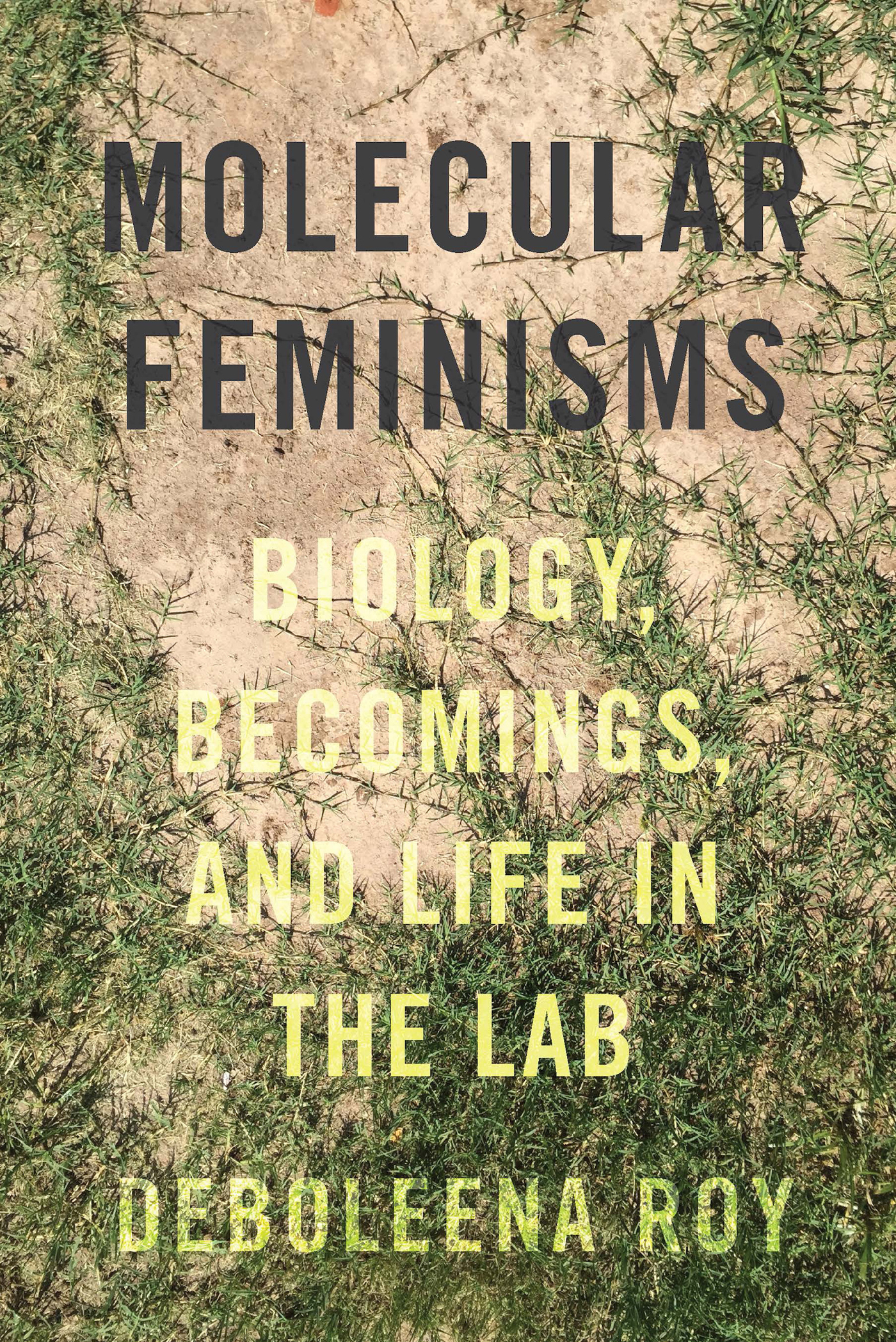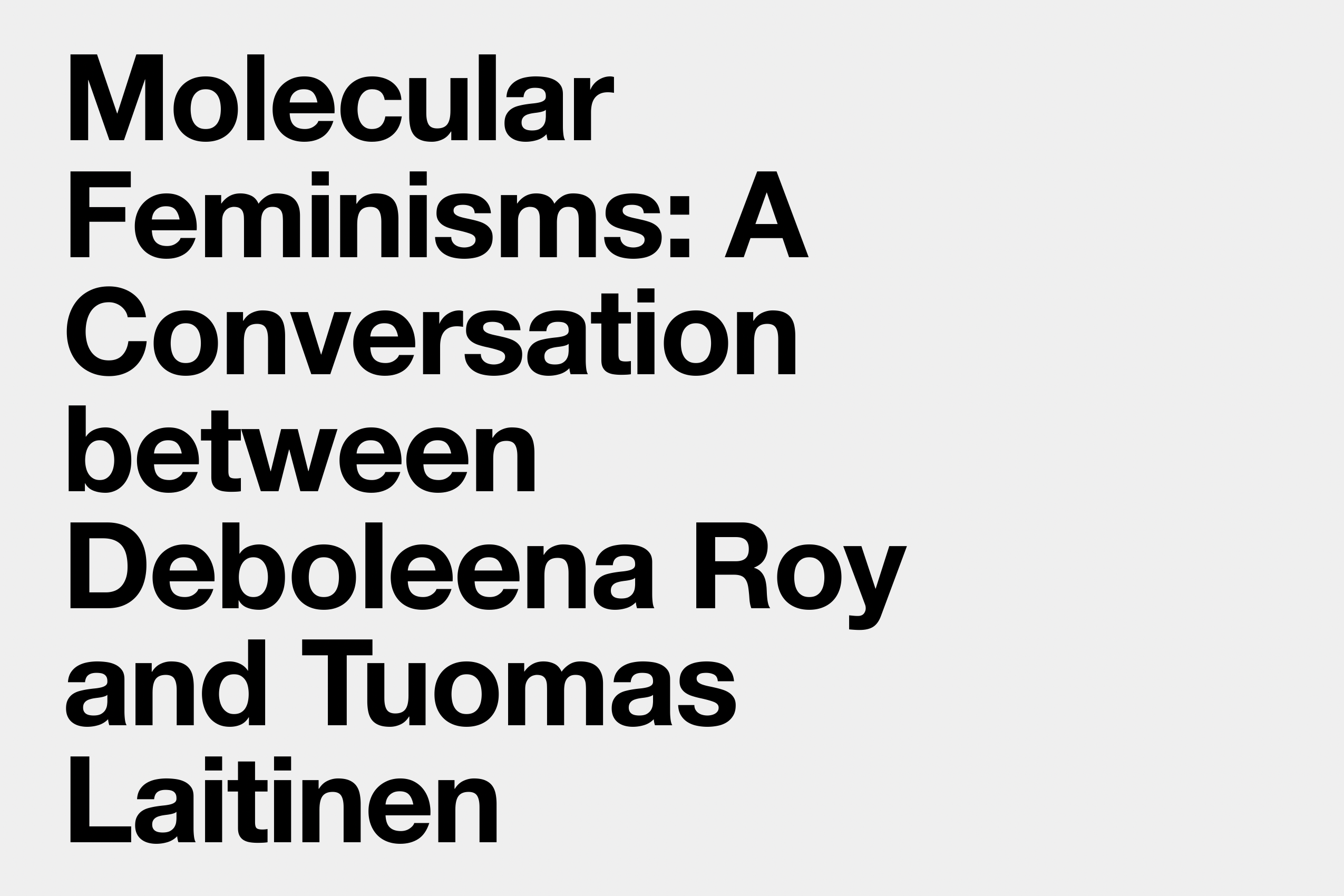Molecular Feminisms: Biology, Becomings, and Life in the Lab
by Deboleena Roy
Deboleena Roy is Senior Associate Dean of Faculty for Emory College of Arts and Sciences, and Professor of Neuroscience and Behavioral Biology (NBB) and Women's, Gender, and Sexuality Studies (WGSS).
“Should feminists clone?” “What do neurons think about?” “How can we learn from bacterial writing?” These and other provocative questions have long preoccupied neuroscientist, molecular biologist, and intrepid feminist theorist Deboleena Roy, who takes seriously the capabilities of lab “objects”—bacteria and other human, nonhuman, organic, and inorganic actants—in order to understand processes of becoming.
In Molecular Feminisms, Roy investigates science as feminism at the lab bench, engaging in an interdisciplinary conversation between molecular biology, Deleuzian philosophies, posthumanism, and postcolonial and decolonial studies. She brings insights from feminist theory together with lessons learned from bacteria, subcloning, and synthetic biology, arguing that renewed interest in matter and materiality must be accompanied by a feminist rethinking of scientific research methods and techniques.
“What does feminist science for the twenty-first century look like? Drawing together molecular biology practices with feminist theory, Roy brilliantly shows us the way with her materialist approach to cloning, estrogen receptors, neurons, and grass stolons. This book is bound to be a classic in feminist technoscience studies.” Michelle Murphy, Professor of History and Women and Gender Studies, University of Toronto
“Reconfiguring a more creative and mutually beneficial interaction between the sciences and the humanities is an immensely important task and Molecular Feminisms provides an excellent and accessible beginning to this significant long-term project.” Elizabeth Grosz, author of The Incorporeal: Ontology, Ethics, and the Limits of Materialism
“Molecular Feminisms is a vital book, in every sense. It is a lively and important account that thinks biology otherwise, in ethnographically rigorous ways. At a political moment when fighting for science is as urgent as critiquing its reductionisms, Deboleena Roy provokes us into thinking about what a feminist stance towards, and praxis of, the life sciences might look like.” Kaushik Sunder Rajan, author of Pharmocracy: Value, Politics, and Knowledge in Global Biomedicine
From the author
As a feminist scientist, I argue that learning how to see the world around us is also about learning how to encounter that world. Molecular Feminisms creates an opportunity for interdisciplinary conversations and aims to provide theoretical and practical toolkits for producing scientific knowledge that is “otherwise.” The book addresses ontological, epistemological, and ethical questions as they relate to biology and matter. It turns to the scientific work of feminists and anti-colonial figures to help reframe dominant modes of thought in both feminist politics and molecular biology research. Molecular Feminisms contributes to the field of feminist science and technology studies, which is committed to promoting digital scholarship and to making research publications and activities more accessible to both experts and non-experts. Open access publication extends the reach of this book to the natural sciences as well as the humanities and allows for the democratization of knowledge, which is an important goal for all feminist work.



